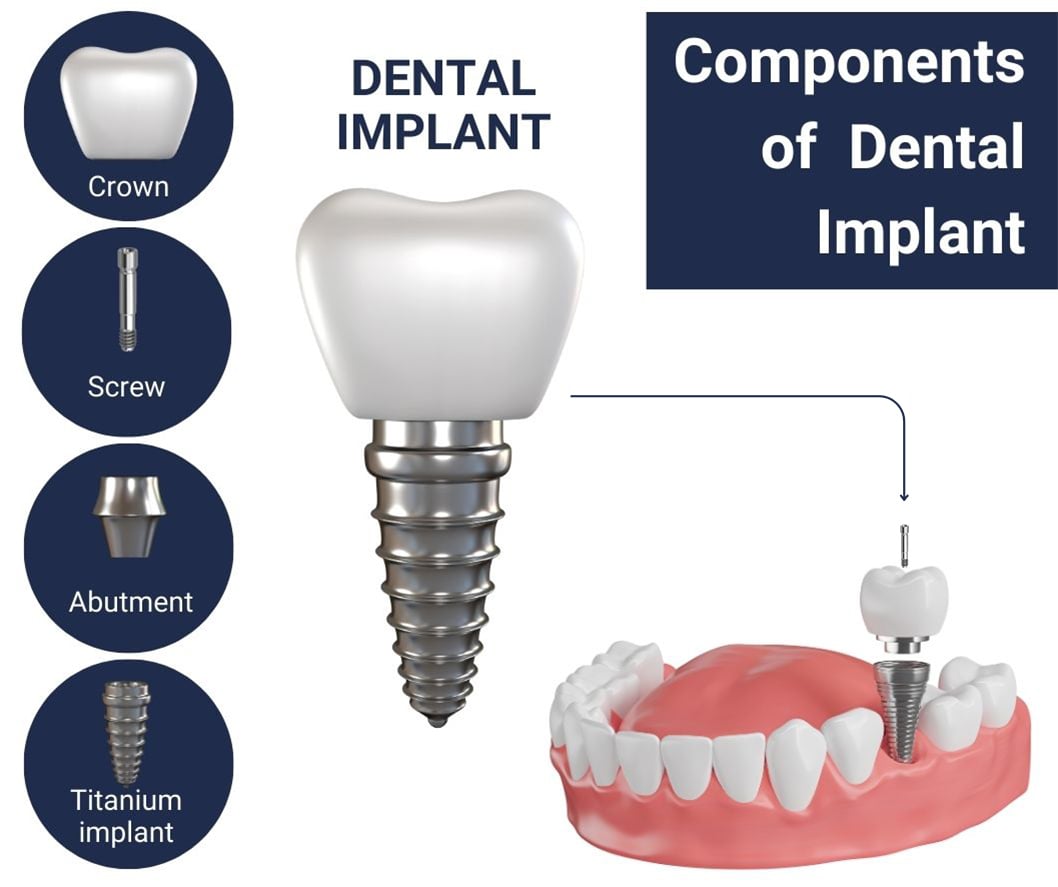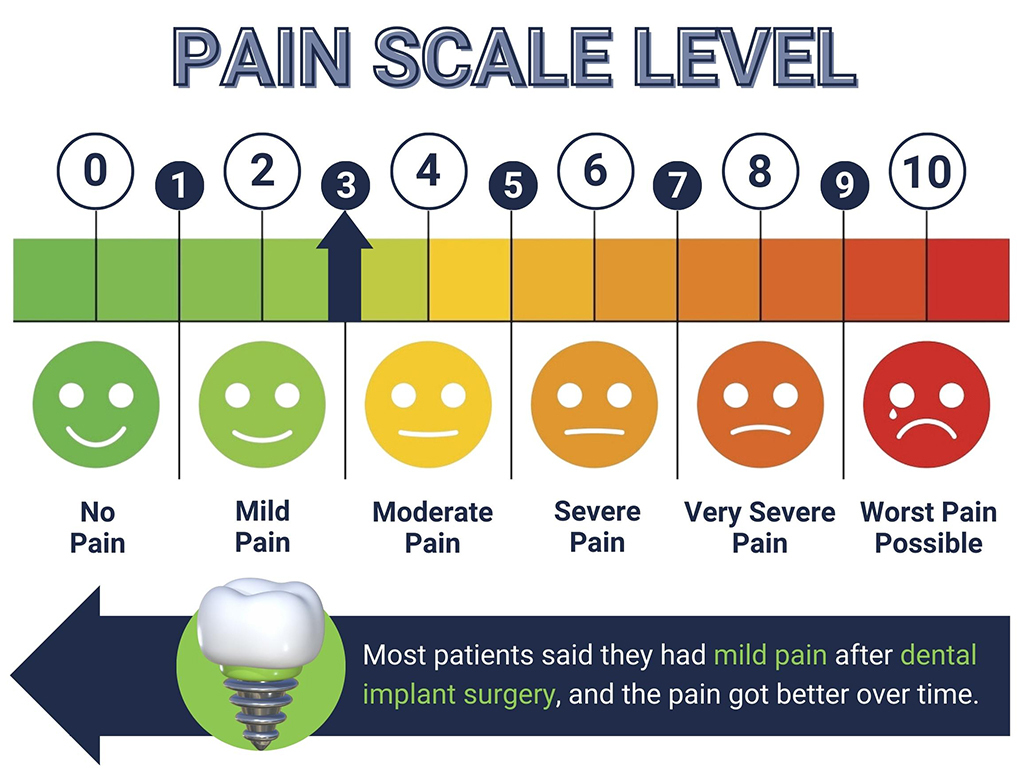Table of contents
Tooth loss is common, but with every tooth you lose, your quality of life can diminish a little more. So, it is important to consider replacing missing teeth as soon as possible, preferably before your dentist removes them. The top tooth replacement solution is dental implants.

Dental implants offer a high degree of stability, strength, reliability, comfort, and functionality not provided by other tooth replacements such as dentures and traditional dental bridges. NYC Dental Implants Center offers a wide range of teeth replacement options:
However, dental implants can be a bit of an investment initially, and there is much to investigate beforehand to ensure this treatment is right for your needs. Here are five things you need to know before considering dental implants.
They Feel and Look Like Natural Teeth
 Dental implants are the only solution for tooth loss that act like real teeth. An implant consists of a small titanium or zirconium post specifically designed to replicate a natural tooth root. The implant post is surgically embedded into the jawbone and soon fuses with the bone during Osseointegration. During this process, new bone grows on and around the implant screw. The result is a strong, stable artificial tooth root that can easily withstand the pressure created when you bite and chew food.
Dental implants are the only solution for tooth loss that act like real teeth. An implant consists of a small titanium or zirconium post specifically designed to replicate a natural tooth root. The implant post is surgically embedded into the jawbone and soon fuses with the bone during Osseointegration. During this process, new bone grows on and around the implant screw. The result is a strong, stable artificial tooth root that can easily withstand the pressure created when you bite and chew food.
Benefits of dental implants
Feel and look like natural teeth: Dental implants are the only tooth replacement option that feels and looks like natural teeth. They allow you to eat, speak, and smile with confidence.
Preserve jawbone health: Dental implants help to preserve jawbone health by stimulating the bone around them. This is important because bone resorption can occur after tooth loss, which can lead to further problems such as facial collapse and difficulty wearing dentures.
Durable and long-lasting: Dental implants are made from durable materials and can last for many years with proper care.
Treatment Isn’t Painful
Understandably, many people are concerned that implant treatment is painful, but the reverse is true. Your dental implant dentist, Dr. Rahmani, will ensure you cannot feel anything during surgery. He uses a local anesthetic to numb the jaw before inserting the posts.

Computer-generated surgical stent
Skilled dental implant dentists also use computer-guided surgery, where your implant surgery is planned digitally beforehand using a CT scan before a computer-generated surgical stent is created. The surgical stent is a special type of template that fits over the gums, allowing your implant dentist to place the dental implants accurately.
Computer-generated surgical technique also ensures implant surgery is quicker and smoother, and healing is faster afterward. However, anxious or nervous people should ask their implant dentist about dental sedation.
Sedation dentistry
Sedation dentistry is a technique that can help you relax in the dental chair, and the amount of sedation provided can be adjusted to suit your needs.
- If you only feel mildly anxious, you may be okay with nitrous oxide or laughing gas.
- People who feel more anxious or require lengthier implant treatment can opt for more moderate sedation, such as an oral sedative taken in pill form before treatment or intravenous sedation, where the sedative is administered through a vein in the crook of the arm or back of the hand.
- Afterward, once any sedative and anesthetic wear off, it’s not unusual to feel only minor discomfort easily counteracted with over-the-counter painkillers. Alternatively, your implant dentist can prescribe something stronger if you feel it’s necessary.
How Painful is Dental Implant Surgery?
Expect to Spend Several Months Completing the Treatment
It’s not unusual to see various procedures like Teeth in a Day, where people can have implants fitted and restored with crowns, bridges, or dentures all on the same day of surgery.
However, while this is an excellent technique, you still need to have a consultation beforehand with an experienced dental implant dentist, Dr. Rahmani, a periodontist with specialized training. He must conduct diagnostic examinations like a cone beam CT scan and digital dental x-rays to assess your suitability and determine your best treatment.
During the initial consultation, you will have an in-depth discussion about which treatment you would prefer. You will also discuss other treatments that might be necessary to ensure your implant treatment is a complete success.
If you lost teeth some time ago and have significant bone resorption, you may need a bone graft to build up the bone preparation for implant surgery. While a bone graft can sometimes be carried out simultaneously when placing the dental implants, it might be preferable to have it as a stand-alone procedure where the bone graft must heal for several months before your implants are inserted into your jawbone. If you have any failing teeth, plans must be made to remove these, and any signs of other dental problems like gum disease must be treated beforehand.
When you have your implant surgery, it’s quite possible that you can have the dental implants and new restorations all on the same day. However, these will certainly be temporary teeth you wear while your implants heal and bond with the bone around them. These temporary teeth will look good and feel comfortable, but you may need to watch your diet and avoid any hard or sticky foods that could damage or break them.
Once your implants have fully healed, probably at least two or three months later, you return to your implant dentist to get your permanent teeth. The entire three-phase process typically takes 3 to 6 months, sometimes even up to 9 months, depending on the individual factors.
Read more about the Dental Implant Process Timeline
Dental Implants Can Become Infected
Because dental implants are artificial, it’s easy to imagine they are resistant to infection, but this isn’t the case.
- Keep it clean. Dental implant posts are surrounded by living bone and gum tissue, and these tissues must be kept clean and hygienic with regular dental care.
- Daily oral care. You must commit to a good daily oral care routine to remove plaque and tartar buildup. Otherwise, the bacteria in dental plaque and tartar can infect your gums and bone, resulting in a disease called peri-implantitis, which is very similar to gum disease. Although peri-implantitis can be successfully treated if caught early enough, advanced peri-implantitis could result in dental implants becoming so severely infected that they begin to loosen and must be removed.
- After-care is important. When you see Dr. Rahmani or your local dentist, they can talk to you about how to care for your implants and explain what is involved. It isn’t difficult to look after dental implants, but it’s vital to understand how important this after-care is to ensure your dental implants can last for years.
- Professional implant cleaning. It would help if you continued to see your implant dentist regularly to have your dental implants cleaned professionally. Special tools are used to clean around the implants, getting rid of all tartar or calculus buildup and helping you maintain healthy implants more easily.
Read more about the treatment for Peri-implantitis
Dental Implants Could Last You for Life
Although dental implant treatment may cost a bit more initially, they could potentially last for life provided you get the right treatment, your implants are properly planned and placed, and you look after them correctly. In the longer term, they can be more cost-effective than the alternatives, and you gain the benefits of teeth that look good and are strong and stable.
For more information about dental implants or to make an appointment, please call NYC Dental Implants Center or visit us in person in Midtown Manhattan.
NYC Dental Implants Center
121 East 60th St Ste 6C2
New York, New York 10065
(60th St. btw Park Ave / Lex Ave)
(212) 256-0000
Consultation
